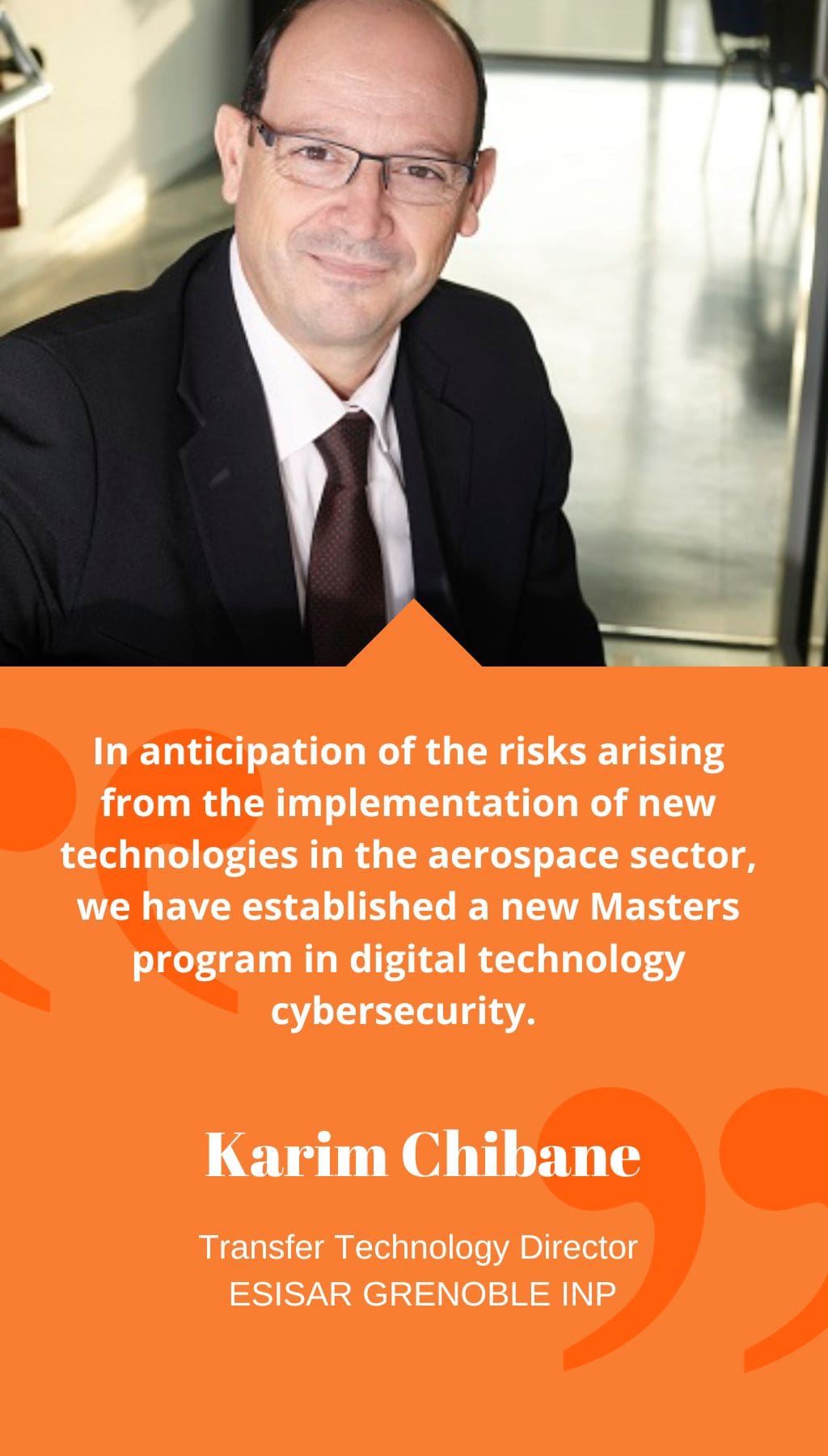
- France | 27 April 2018

Could you please provide us with an overview of Esisar Grenoble INP and its role in the aerospace industry in the Auvergne-Rhône-Alpes region?
Esisar Grenoble INP is a public sector technology university that consists of six engineering schools, boasting over 5200 students and over 1400 teaching and research staff. The university has established strong links with the aerospace industry in the Auvergne-Rhône-Alpes region, with 1,200 students participating in industry placements annually. Specifically, Esisar Grenoble INP, situated in Valence, focuses on developing embedded systems, radio frequency solutions and digital technology for industrial applications. The school comprises 80 engineering teaching staff and 500 students, and is complemented by the research laboratory, the Laboratory of Design and Integration Systems (LCIS), which boasts around 50 permanent researchers and 30 PhD students at a time. LCIS collaborates with significant players in the aerospace industry, and has the means, skills, and expertise to offer a wide range of research-based services to the aerospace industry.
How do the teaching and industrial research elements of Esisar Grenoble INP complement each other?
The collaboration between teaching and research is mutually beneficial for our students and industrial partners. Esisar Grenoble INP admits around 100 undergraduate students each year for a five-year engineering program, and 10% of them typically proceed to undertake their PhD programs in the laboratories partnered with companies in the aerospace industry. This R&D system is a genuinely collaborative one that benefits all stakeholders.
Furthermore, Esisar offers a specialized framework for cooperation with SMEs. In this program, SMEs can mobilize a team of three students for six months to work on an innovation process. Approximately 25 of these industrial projects are conducted each year. In addition to access to research resources and talent, participating companies receive substantial financial benefits as a result of government incentives, such as the research tax credit system, which provides tax discounts to companies that collaborate with academic structures for research.
In the longer term, our partner companies benefit by building relationships with young engineering talent, thereby guaranteeing that they will not be affected by the dearth of skilled talent that many other companies face. Retaining PhD students as permanent staff following collaboration with LCIS or Esisar Grenoble INP is a common practice for our partner companies, as the contributions these students can make to their employers are significant. We have bridged the gap between the high level of theoretical knowledge that students have after graduation and the industrial experience they need to succeed in the workplace.
What are the objectives of Esisar Grenoble INP for the next 3-5 years?
In anticipation of the risks arising from the implementation of new technologies in the aerospace sector, we have established a new Masters program in digital technology cybersecurity. Embedded systems and the internet of things present numerous advantages in terms of operational and manufacturing efficiency, but they also pose entirely new hacking and security risks for individual companies and government bodies. We expect a shortage of qualified electrical engineers specialized in security in the coming years. Therefore, we are investing in this area of training and technology transfer to address the gap.














